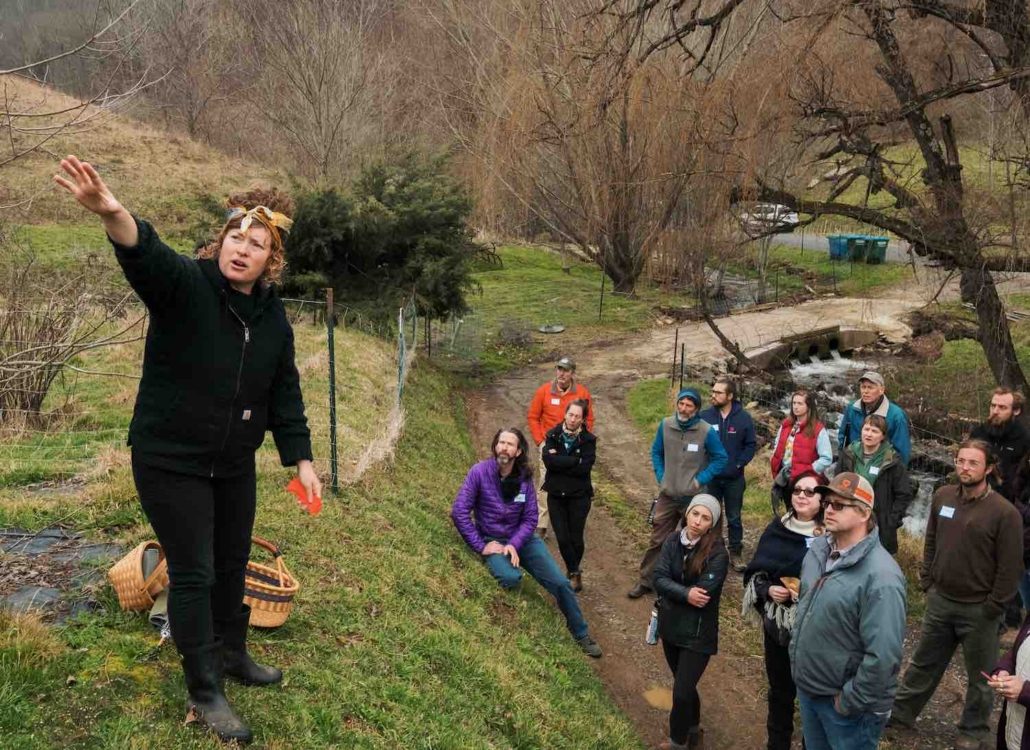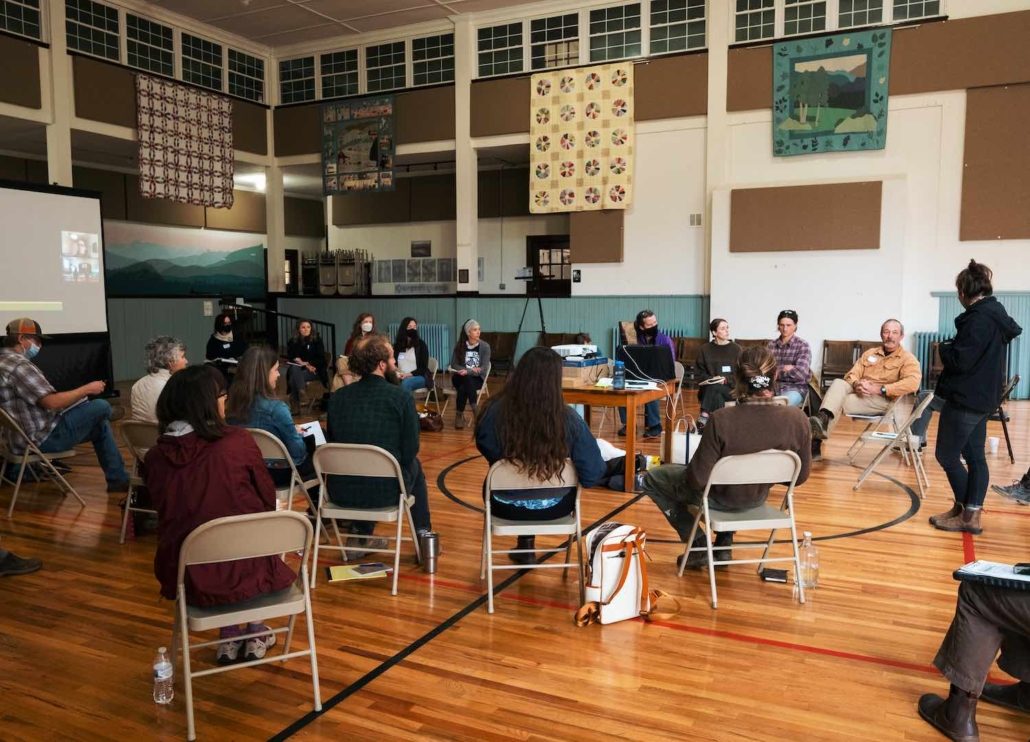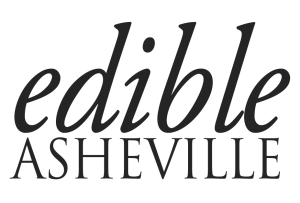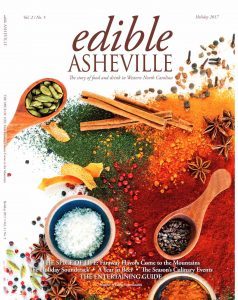OGS SPRING CONFERENCE 2024
MARCH 8-10 | MARS HILL UNIVERSITY
***
What You Need to Know:
A Q&A With Conference Coordinator Chris Peterson
Since its launch in 1993, the Organic Growers School’s Spring Conference has become the Southeast’s pre-eminent annual conference for teaching skills related to cooking, gardening, farming and herbal healing.
It’s held in March at Mars Hill University and offers a variety of 90-minute courses, as well as more intensive instruction in half-day workshops.
We sat down with Conference Coordinator Chris Peterson to get details on the 2024 event.
Edible Asheville: How many people attend the Spring Conference each year – and who is the conference geared toward?
Chris Peterson: In 2023, over 750 people participated. We get a lot of people coming in from the broader Southeast region to attend the Spring Conference—people from Charlotte, Atlanta, etc.—as well as people from around the country. A large portion of our students come from the Asheville area and Western North Carolina, our own backyard. We just happen to live in a region where a lot of these skills are valued and incorporated into people’s daily lives.
Generally speaking, the conference is geared towards anyone interested in farming, gardening, or living organically. It includes both new and experienced farmers, home growers, cooks, herbalists, foragers, forest farmers, and anyone else interested in sustainable living.
EA: That’s a good point. Many of the attendees are regular folks looking to cultivate cooking, gardening or homesteading skills — but aren’t professional farmers. Do you think they feel empowered by learning how to do these things for themselves?
Peterson: When the conference started 30 years ago, we had a focus on professional farmers who were using organic practices. We then realized there was a lot of demand for the skills we were teaching among home growers and other folks who were just interested in living more sustainably. We therefore expanded our mission and, today, we’re just as likely to see people who cultivate a small backyard garden as we are a professional farmer who makes their living off the land.
Yes, we do think there is power in knowledge. When people know how to grow their own food or preserve a season’s harvest by canning it and saving it for future use – or maybe even cultivate herbs that can be used for healing – it strengthens their ability to be self-sufficient and care for their own needs. Plus, a lot of these activities are really enjoyable to do and so we do have people who are looking to bring a rewarding activity into their lives.
We also offer courses that encourage people to invest in our community by learning about the most pressing issues facing growers and others in the local food community. Folks can take a look at the courses we’re offering on earth stewardship and food justice if they want to join the dialogue about issues like equality and sustainability, and contribute solutions to these very real concerns.

EA: There’s a lineup of several cooking courses at the conference, including courses on fermentation and canning. After taking these classes, will attendees gain most of the knowledge they need to start these practices at home?
Peterson: Our cooking classes are definitely designed to set participants up to use these skills at home. Ashley English’s “Introduction to Home Canning” and Meg Chamberlain’s half-day session titled “Home Fermentation Basics” are both great examples of this. They’ve designed these classes so that attendees can come learn some basic skills in food preservation, but with a view to actually use it to save the produce of the season throughout the year.
Likewise, classes like Sophia Eng’s “Ancient Asian Wisdom for Modern Sustainability” provides a deep connection between her cooking tradition and sustainable growing. While it centers on one dish (chicken pho) that participants can learn to make on their own, it also helps them to make new connections between culture and agriculture.
EA: The courses on gardening look amazing. There’s one on vegetable farming and another one on flower farming, for example. How do you guys go about choosing the topics for the various tracts?
Peterson: Our conference is divided into 13 learning tracks–—gardening, cooking, farming-business, food justice, forest farming, and others—and the majority of these tracks are led by a community member with expertise in that subject area.
Chris Smith, founder of the Utopian Seed Project, for example, is the track leader for the gardening track. These track leaders work with conference staff to recruit speakers and pick topics that represent variety, diversity, and current important topics in that particular area.
We work together with track leaders and other conference partners to then select the classes that meet these goals, while also appealing to growers of all different skill levels and from different backgrounds. This community-driven approach is really important to our values at OGS and also sets this conference apart.

EA: Can you explain the structure of the conference? It seems like there are courses and workshops, along with half-day and full-day options. What are the differences between these options?
Peterson: Most people buy either weekend passes (Saturday & Sunday) or single-day passes (Saturday or Sunday). Those give them the ability to attend any one of a number of classes offered on those days. They can pick and choose. Each class is 90 minutes long, and a full day can include four classes.
All of the classes are grouped together by learning tracks, a particular area of focus, and we have 13 learning topics. We talked about a few of them above. Most of the 90-minute class sessions, except for panel discussions, repeat both Saturday and Sunday to give participants a chance to attend classes that might conflict with others on the schedule.
For an additional $15, participants can attend half-day classes, which are deeper dives into a particular topic and tend to be more hands-on. These also generally repeat both Saturday and Sunday. One half-day class offers instruction on making mead, for example, while another teaches you how to save seeds. There are others.
Finally, we do offer full day pre-conference classes on Friday for deeper learning in a more intimate setting. Pre-conference tickets can be purchased on their own or added to any single day or full weekend pass.
EA: Can you explain the sliding scale for registration rates?
Peterson: While the OGS Spring Conference is already the most affordable conference of its type, equity is one of our highest values. That’s why we are offering sliding scale pricing again this year. We’ve divided our pricing into three levels to reflect this. “Roots” pricing is our equity pricing. Roots pricing is offered for participants who might otherwise struggle to afford to come to the conference, such as those with low income or who are unemployed, underemployed, or have historically been excluded from these types of learning spaces.
“Shoots” pricing is what we would refer to as the “true price” of the conference and is meant for individuals who can regularly meet their basic needs.
Finally, “Fruits” pricing is designed for those of greater means who are willing and able to help others in our community to access the conference.
On our registration form, you simply select which tier applies best to you (there are some guiding questions on our website for those who are unsure) and the payment page will reflect the pricing in that category.
Save
Save
Save
Save
Save
Save
Save
Save
Save
Save
THE WEEKLY REVEL
Sign up for your free handpicked guide to enjoying life around Asheville.
Available weekly from May to October.





